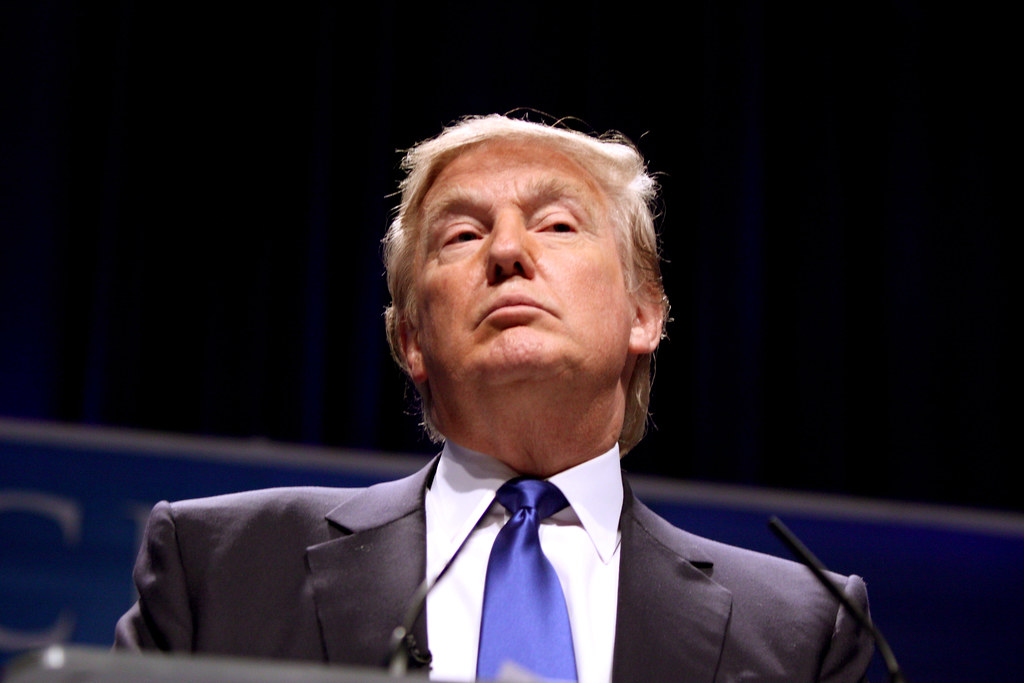The war between Trump and the news media just got real, with 70+ news organizations banding together to fight back against his unwarranted attacks.
To say Trump’s relationship with the media is contentious would be the understatement of the year – if not the decade.
The Washington Post reported on Sunday that:
Trump labeled the news media “the enemy of the American people” a month after taking the oath of office. In the year that followed, a CNN analysis concluded, he used the word “fake” — as in “fake news,” “fake stories,” “fake media” or “fake polls” — more than 400 times. He once fumed, the New York Times reported, because a TV on Air Force One was tuned to CNN.
And last week, at a political rally in Pennsylvania, Trump told his audience that the media was “fake, fake disgusting news.”
“Whatever happened to honest reporting?” he asked the crowd. Then he pointed to a group of journalists covering the event. “They don’t report it. They only make up stories.”
He has taken to social media to launch unprecedented attacks going so far as to accuse the media of starting wars in a recent tweet:
“The Fake News hates me saying that they are the Enemy of the People only because they know it’s TRUE. I am providing a great service by explaining this to the American People. They purposely cause great division & distrust. They can also cause War! They are very dangerous & sick!” he tweeted on August 5th of this year.
The Boston Globe decided to push back, publishing a rallying cry to newspapers “to protect free press from Trump attacks.”
‘‘We are not the enemy of the people,’’ said Marjorie Pritchard, deputy managing editor for the editorial page of The Boston Globe, referring to a characterization of journalists that Trump has used in the past. The president, who contends he has largely been covered unfairly by the press, also employs the term ‘‘fake news’’ often when describing the media.
The Globe has reached out to editorial boards nationwide to write and publish editorials on Aug. 16 denouncing what the newspaper called a ‘‘dirty war against the free press.’’
Continuing, The Boston Globe reported that, as of Friday, “about 70 outlets had committed to editorials so far, with the list expected to grow. The publications ranged from large metropolitan dailies, such as the Houston Chronicle, Minneapolis Star Tribune, Miami Herald, and Denver Post to small weekly papers with circulations as low as 4,000.”
The Washington Post reported that the effort by The Boston Globe represents one side of a debate about how the media should view and respond to the president’s splenetic attacks on the press,” adding that:
Washington Post Executive Editor Martin Baron, who has responded directly to Trump’s attacks, said the paper’s reporting on the president is not a result of hostility. Baron told the Code Media conference in California: “The way I view it is, we’re not at war with the administration, we’re at work. We’re doing our jobs.”
Baron told interviewers that The Post would have approached a Hillary Clinton administration with the same aggressive reporting.
In a conversation on Twitter, Jay Rosen, a media critic and journalism professor, said journalists’ defending themselves was consistent with the chief journalism aim of telling the truth:
“The problem, of course, is that there is war on the press being conducted by the president of the United States and his supporters. To say otherwise would violate a different commandment. Yes, it’s imperative to keep your cool. It is equally imperative to state what is true.”
The Washington Post concluded their article, noting that: “Others have argued that there’s a moral imperative to speak up because Trump’s rhetoric can result in more than words being hurled toward journalists.”
Some have pointed to the killing of five people who worked at the Capital Gazette in Annapolis as an example. The man charged with five counts of murder in the killings had a vendetta against the newspaper, authorities said. But critics have said that Trump’s anti-media comments do not help.
“What’s clear is that Trump has made it a verbal open season on journalists, many of whom have felt the sting one way or another,” columnist Kathleen Parker wrote in The Washington Post on June 29. “For all of us ink-stained wretches, the hate mail is more vicious than ever. The death threats more frequent.”
Last week, New York Times opinion columnist Bret Stephens described Trump’s anti-media words as “incitement” and shared a threatening voice mail he had received from a blocked number.


You must be logged in to post a comment Login